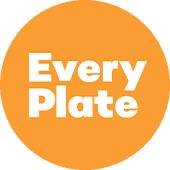The bladder is one of those body parts that most people don’t think about often (if at all). But just like any other part of your body, it’s important to take care of your bladder to ensure it keeps doing its job and doesn’t draw attention to itself (i.e. create uncomfortable symptoms).
In this article, we’ll share tips for keeping this important organ healthy, but first, let’s cover some bladder basics.
What Is the Bladder?
The bladder is a triangle-shaped, hollow organ that’s located in lower abdomen. Its purpose is to store urine. In a healthy adult, a bladder can typically hold up to two cups of urine for up to five hours before it needs to empty through urination.
How Do the Kidneys Interact with the Bladder?
The bladder is only one of four parts of the urinary tract, which work together to eliminate excess liquids and waste from the body.
The other three parts include:
- Kidneys: Two bean-shaped organs that filter blood to remove excess liquids and waste products from the body.
- Ureters: Two small tubes that connect the kidneys to the bladder.
- Urethra: A small tube that connects the bladder to outside the body, allowing urine to exit.
Urine is formed when blood passes through the kidneys, where it’s filtered to remove waste products and excess water. The two ureters then transport the urine from the kidneys to the bladder.
As the bladder slowly fills with urine, a person will feel an increasing urge to urinate. When a person finds a restroom and positions themselves to urinate, their bladder muscles contract, pushing the urine into the urethra. Simultaneously, the muscles around the urethra relax, allowing urine to flow out of the body.
How Do You Keep Your Bladder Healthy?
Certain poor habits can increase your risk of urinary tract infections (UTIs), most commonly bladder or kidney infections. Additionally, age-related bladder changes can lead to issues like urine leakage and urgency.
While some things are out of your control, there are several things you can do to reduce your risk of infection and support the health of your bladder as you age.
Here are five tips for keeping your bladder as healthy as possible.
#1: Practice Healthy Bathroom Habits
- When you gotta go, go! Avoid holding your urine for too long, as this can increase the risk of a UTI.
- Empty fully. Ensure you release all of the urine in your bladder when urinating. If urine remains in the bladder too long, it can increase the risk of a UTI.
- Relax. When urinating, make a conscious effort to relax your bladder muscles. This will make it easier to fully empty your bladder.
- Wipe front to back. After having a bowel movement, women should wipe from front to back. This keeps bacteria from getting into their urethra.
#2: Drink Plenty of Water (but Don’t Overdo It)
Drinking an adequate amount of water daily flushes bacteria out of your urinary tract, helping to prevent UTIs. Don’t drink too much water, though. Doing so can lead to frequent bathroom trips and throw your body’s electrolyte balance out of whack.[*] A good guideline is to drink to thirst.
#3: Avoid Tobacco and Limit Alcohol
Tobacco use is a major risk factor for bladder cancer, with smokers being at least three times as likely to develop the disease as nonsmokers. In fact, smoking causes about half of all bladder cancers.[*]
Alcohol is another substance that doesn’t do your bladder any favors. It’s a diuretic, which means it increases the production of urine. Alcohol is also a bladder irritant that can worsen overactive bladder symptoms.[*] If you have incontinence, consider eliminating alcohol.
#4: Take Precautions Before and After Sex
The friction involved in sexual activity can push bacteria from the bowel or vaginal cavity toward the opening of the urethra. If possible, both women and men should urinate shortly after having sex to lower their risk of UTIs.
Women should also clean their genital and anal areas before and after intercourse to help prevent infection.
#5: Eat Well and Exercise Regularly
Eating a healthy diet and engaging in regular exercise will help you maintain a healthy weight and avoid constipation, both of which support bladder health. Center your diet around whole foods, including fruits, vegetables, whole grains, legumes, nuts, seeds, and some animal protein, if you’d like.
As for exercise, aim for 150 minutes of moderate-intensity exercise weekly.[*] Walking, jogging, swimming, dancing, hiking, and biking are all good options.
#6: Do Pelvic Floor Muscle Exercises
Pelvic floor exercises can strengthen the muscles that hold in urine. This can prevent urine from leaking when you sneeze, cough, lift, laugh, or need to urinate—a common problem that comes with age.
#7: Wear Cotton Underwear and Loose-Fitting Clothing
Are skinny jeans still in? Regardless, it’s best to choose loose, cotton clothing. This will help keep the area around the urethra dry. Tight-fitting pants and nylon underwear can trap moisture, promoting bacteria growth.
#8: Observe Your Urine
Your urine can tell you a lot about your health. Normal, healthy urine is usually light yellow with a slight odor. If your urine is dark yellow or amber-colored, it’s a sign you need to drink more fluids.
If you notice your urine smells different than usual, is a drastically different color than expected, or is cloudy or bloody, check in with your doctor as soon as possible, as these could be signs of an infection or other medical condition.
Pain with urination or more frequent urination (without increased fluid intake) are other signs of an infection or other medical issues that need to be promptly addressed.
Start Caring for Your Bladder Today
If you’re looking for a way to stay on top of your bladder care (and health in general), consider becoming a Knew Health member. Our members receive free telemedicine appointments where they can promptly address general health concerns, like UTIs, with a licensed doctor.
Knew Health also provides members with free health coaching where they can work on establishing healthy habits, like drinking adequate water, eating healthier, and exercising.
Knew Health effectively manages costs through price transparency and medical cost sharing, ensuring you get the best quality care at the most reasonable cost.
Effectively managing your health care and implementing small daily changes can go a long way in supporting not only the health of your bladder, but your entire body and mind!
Disclaimer: This information is being provided to you for educational and informational purposes only. It is being provided to educate you about how to take care of your body and as a self-help tool for your own use so that you can reach your own health goals. It is not intended to treat or cure any specific illness and is not to replace the guidance provided by your own medical practitioner. This information is to be used at your own risk based on your own judgment. If you suspect you have a medical problem, we urge you to take appropriate action by seeking medical attention.









































